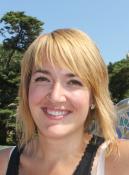ASC fish welfare rules set to be tightened

Stricter fish welfare requirements could be introduced for producers certified by the Aquaculture Stewardship Council, under proposals published today.
The ASC is also consulting on additional documents accompanying its recently published Feed Standard, which aims to assure consumers that aquafeed used by ASC-certified producers is responsibly and ethically sourced.
The ASC is an independent, not for profit body that sets sustainability and welfare standards for the industry internationally. It was co-founded by the World Wildlife Fund and The Sustainable Trade Initiative in 2010.
The consultation launched today marks the first phase of the ASC’s wide-ranging fish welfare project. A second phase will follow for public consultation at a later date following further research and development, that will bring in other species and address further welfare issues.
The ASC’s draft white paper on fish welfare can be found on the ASC website. The project’s proposed first phase will include:
- Requirements of best practice for water quality.
- Setting of limits for stocking density.
- As an initial approach, prohibiting a number of slaughter practices: asphyxia (suffocation); Carbon dioxide; salt baths or ammonia. Further requirements on slaughter will be added in later phases, such as the prohibition of the use of ice slurry for slaughter, to encourage ongoing improvements.
The phase one requirements above will apply to ASC certified finfish farms. However, included in phase one will be a requirement for good management practice for all farmers of fish, crustacean and bivalve species, covering issues such as staff training and risk assessment, the ASC said.
Janneke Aelen, ASC Welfare Coordinator, said: “There is an understandable desire among our stakeholders, and many consumers, to see more welfare requirements added to the world’s strictest aquaculture certification scheme.
“At the same time, with some of these issues we are in uncharted territory. Sometimes developing new indicators is a case of gathering pre-existing evidence, but in the case of some welfare issues it has required commissioning our own research.
“ASC is first and foremost an evidence-based organisation. This approach allows us to tackle the most urgent welfare issues while ensuring we don’t stray from our principles for rigour and evidence.”
The new draft documents relating to the Feed Standard: the Certification and Accreditation Requirements (CAR) and the Requirements for Unit of Certification (RUoC). While the standard itself sets out the exact indicators that must be met for a mill to produce responsibly sourced feed, the CAR details the requirements a certification body needs to follow in order to conduct audits and certify against the ASC feed standard.
The RUoC is aimed at the organisations seeking certification, which in the case of the Feed Standard will be feed mills. It details the requirements the feed mill will need to take in order to enter and undergo the audit and certification process for the ASC feed standard.
The draft CAR and RUoC can be found on the ASC’s Programme Improvements page.

Janneke Aelen, ASC

